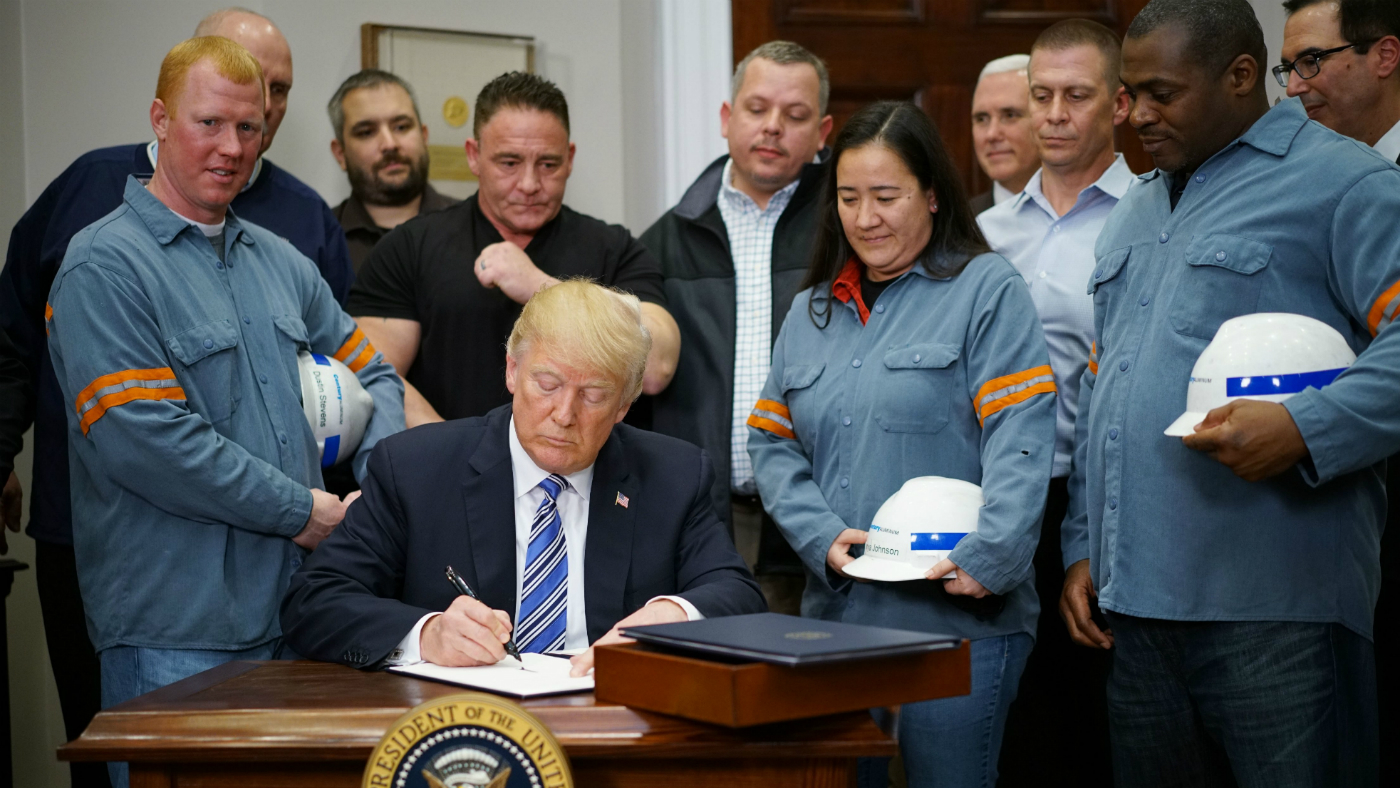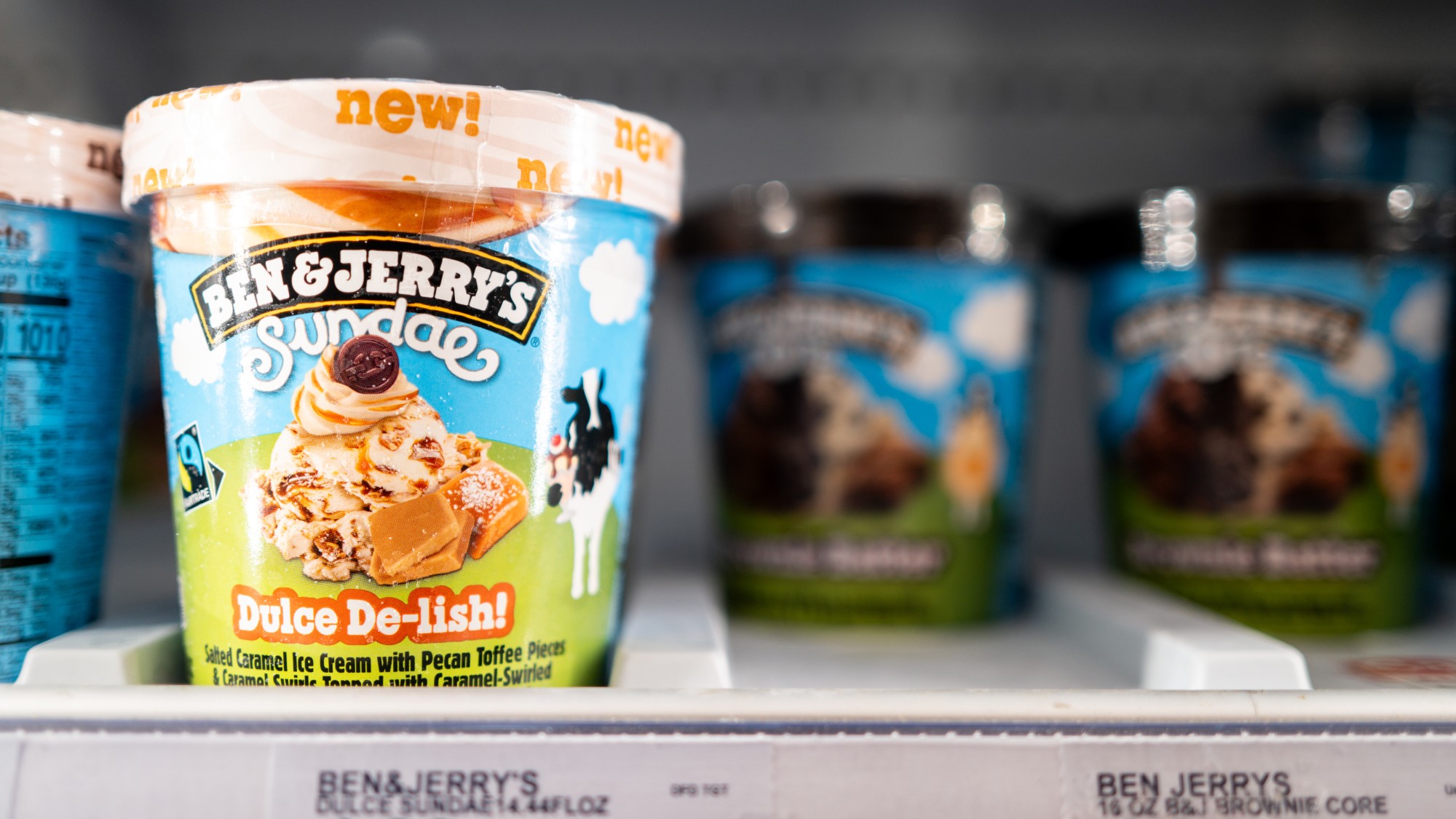Trump tariffs: new duties on steel and aluminium anger US allies
President accused of ‘serious attack’ on global trade order despite exemptions

A free daily email with the biggest news stories of the day – and the best features from TheWeek.com
You are now subscribed
Your newsletter sign-up was successful
Donald Trump has delivered on his promise to increase import tariffs on steel and aluminium, raising the spectre of a full-blown trade war.
The import duties - 25% on steel and 10% on aluminium - were signed off by the US president yesterday, despite fierce opposition from allied nations and many in his own party.
“We have to protect and build our steel and aluminum industries, while at the same time showing great flexibility and cooperation toward those who are really friends of ours, both on a trade basis and a military basis,” Trump said at a signing ceremony attended by steel and aluminum workers.
The Week
Escape your echo chamber. Get the facts behind the news, plus analysis from multiple perspectives.

Sign up for The Week's Free Newsletters
From our morning news briefing to a weekly Good News Newsletter, get the best of The Week delivered directly to your inbox.
From our morning news briefing to a weekly Good News Newsletter, get the best of The Week delivered directly to your inbox.
The move has “spooked markets, prompted his chief economist’s resignation, rattled major US allies and widened a rift with establishment Republicans”, says CNN.
China described the decision as a “serious attack on normal international trade order”, while France’s economy minister Bruno Le Maire warned there were “only losers” in a trade war.
The EU has already threatened to retaliate by imposing huge levies on iconic American products. Levi jeans, bourbon whiskey and Harley Davidson motorbikes were on a draft list of US goods to be hit with a 25% import tax, EU Commissioner for Trade Cecilia Malmstrom said this week.
Gareth Stace, the director of industry group UK Steel, said the tariffs “would have a profound and detrimental impact” on the UK steel sector.
A free daily email with the biggest news stories of the day – and the best features from TheWeek.com
“The sector is in the midst of a fragile recovery following years of considerable turmoil, it would be utterly devastating if this were to be undermined,” Stace told Sky News.
There were signs of softening amid the tough talk from Washington DC, however. Canada and Mexico will be exempt from the tariffs amid ongoing Nafta negotiations, and other US allies will be allowed to petition for similar exemptions.
Although this “may keep trading partners from unleashing immediate retaliation, it could all backfire by antagonising American allies”, says Bloomberg. “Countries refused special treatment could still hit back against the US with trade barriers of their own down the road.”
-
 The EU’s war on fast fashion
The EU’s war on fast fashionIn the Spotlight Bloc launches investigation into Shein over sale of weapons and ‘childlike’ sex dolls, alongside efforts to tax e-commerce giants and combat textile waste
-
 How to Get to Heaven from Belfast: a ‘highly entertaining ride’
How to Get to Heaven from Belfast: a ‘highly entertaining ride’The Week Recommends Mystery-comedy from the creator of Derry Girls should be ‘your new binge-watch’
-
 The 8 best TV shows of the 1960s
The 8 best TV shows of the 1960sThe standout shows of this decade take viewers from outer space to the Wild West
-
 Currencies: Why Trump wants a weak dollar
Currencies: Why Trump wants a weak dollarFeature The dollar has fallen 12% since Trump took office
-
 TikTok: New owners, same risks
TikTok: New owners, same risksFeature What are Larry Ellison’s plans for TikTok US?
-
 Trump wants a weaker dollar, but economists aren’t so sure
Trump wants a weaker dollar, but economists aren’t so sureTalking Points A weaker dollar can make imports more expensive but also boost gold
-
 Leadership: A conspicuous silence from CEOs
Leadership: A conspicuous silence from CEOsFeature CEOs were more vocal during Trump’s first term
-
 The end for central bank independence?
The end for central bank independence?The Explainer Trump’s war on the US Federal Reserve comes at a moment of global weakening in central bank authority
-
 Can Trump make single-family homes affordable by banning big investors?
Can Trump make single-family homes affordable by banning big investors?Talking Points Wall Street takes the blame
-
 Phish food for thought: Ben & Jerry’s political turmoil
Phish food for thought: Ben & Jerry’s political turmoilIn the Spotlight War of words over brand activism threatens to ‘overshadow’ the big ice cream deal
-
 What a rising gold price says about the global economy
What a rising gold price says about the global economyThe Explainer Institutions, central banks and speculators drive record surge amid ‘loss of trust’ in bond markets and US dollar